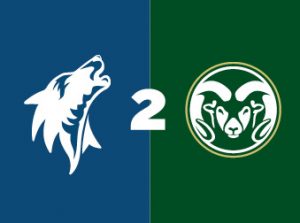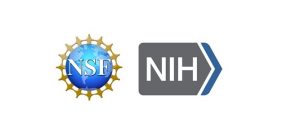
Wolves to Rams help FRCC students transfer to and graduate from CSU in STEM
Wolves to Rams provides advising, scholarships, stipends, workshops, mentorship, and paid research training. We want more FRCC students to:
- transfer to CSU
- enter scientific research
- earn a bachelor’s degree
- and have a successful career
Wolves to Rams is funded by grants from the National Institutes of Health and the National Science Foundation. W2R also has faculty and staff at both FRCC and CSU. Use the ribbon at the top of the page to explore our different programs.
- All workshops are open to any FRCC student (regardless of transfer plans)
- Any FRCC student who plans to transfer to CSU in STEM can book an advising appointment with W2R Assistant Director Erin Pitts here: epitts.appointy.com
- Wolves to Rams provides a $30,000 scholarship to 30 new students every year through the NSF Scholarship Program (click on the top ribbon to read more about this program)
- Wolves to Rams provides a $40,000 research training program to 6 students each year through the NIH Research Traineeship program
Once you get to CSU, we have similar programming for all W2R students, regardless of if you receive funding from us or not.
Being a member of the Wolves to Rams Community means:
- Committing to transferring to CSU and earning a bachelor’s degree
- Developing a Financial Plan
- Utilizing Personalized Transfer Advising
- Accelerating Academic Momentum
- Collaborating with Peers
- Developing as a Scientist
- Maximizing Academic Support
- Identifying Transfer Support
- Seeking Research Experiences
- Discovering Faculty Mentors
There are two programs that fund FRCC students included in Wolves to Rams: The NSF Scholarship and the NIH Research Internship. You can find out more about each of these programs by clicking the links on the top ribbon.
This material is based upon work supported by the National Science Foundation under Grant Number 1930150 & 19300092 and the National Institutes of Health under Grant Number 1T34GM137861-01.

